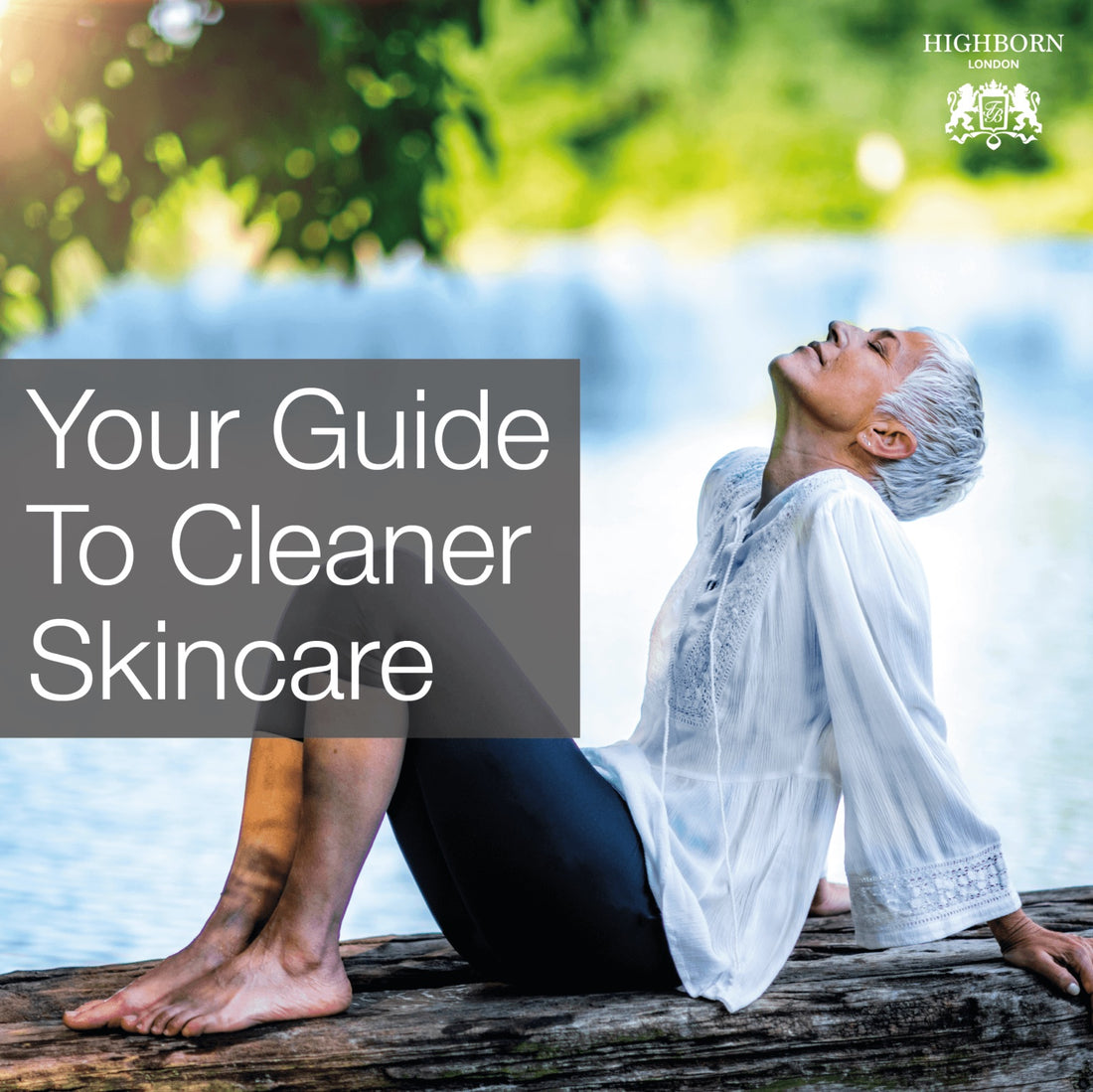
How To Clean Up Your Skincare Routine
Share

As you know, we take climate change and sustainability very seriously. No longer a distant worry for ‘sometime in the future’, it’s one of the most serious threats that currently faces humankind. The simple truth is that modern living is negatively impacting our planet right now and we all need to check in on doing our bit.
A great way you can help is to think carefully about your skincare routine. This may sound small and insignificant in the grand scheme of things, but we truly believe that if everyone did the following, together we could help make a real difference.
Think About How Your Products Are Packaged
According to Greenpeace, the UK generated approximately 5.2 million tonnes of plastic waste in 2018 alone. That’s enough to fill six Wembley stadiums. We hate the fact that plastic bottles and shrink-wrapped containers are filling up our landfills, so we’re doing everything we can to reduce our part in that. Full disclosure: it’s not easy, but believe us, we’re not far off getting to 100 percent plastic-free with the majority of our range already fully recyclable!
The Alternatives: Products like our Imperial Eye Gel, Imperial Moisturiser and Natural Luminosity Scrub (to name just a few) are all packaged into recyclable glass jars. And those that aren’t quite there yet? Well, our Natural Impact Shampoo and Conditioner both come in extra large 500ml bottles so they at least last longer and reduce wasteful packaging. As we said, we’re getting there…
Avoid This Dirty Duo in Your Skincare
You might think skincare ingredients are harmless, but certain chemicals have the potential to be pretty unkind to the environment. Here are the two most important bad guys to put on your ‘nope’ list.
1. Parabens
Parabens like butylparaben and methylparaben are preservatives used in cosmetics to prolong their life and inhibit bacteria. Of course, you don’t want mould growing overnight in your favourite face cream, so anything that preserves its shelf-life is good, right? Wrong. Parabens are believed to not only be detrimental to your skin and health, but because they get washed into our sewage systems they can also negatively affect coral, dolphins and other marine life.
The Alternatives: Instead of nasty parabens, we use much safer preservatives like phenoxyethanol and ethylhexylglycerin across all HIGHBORN products.
2. Sulphates
You’ll rarely see the word ‘sulphate’ on your ingredients lists, but they’re often there, hiding among acronyms such as SLS (sodium lauryl sulphate) and SLES (sodium laureth or lauryl ether sulphate).
Sulphates are surfactants which are basically cleansing agents used in products like shampoo, body wash, facial cleanser and toothpaste. And the thing is, they’re very good at their jobs because they degrease and create a fabulous lather, offering a super clean feeling that some people can’t live without.
The main problem, however, is they strip your skin’s natural barrier function and can often cause dryness, irritation and even breakouts, especially if you have sensitive skin. But that’s not all, sulphates are non-biodegradable, so when they get washed down the drain they remain in our water and soil, creating an unbalanced, acid-like environment and possibly contributing to things like acid rain and climate change.
The Alternatives: Rather than bombard sewage systems with even more damaging sulphates, we use castile in our Crystal Cleanser, a vegetable-based soap that’s possibly the most natural surfactant out there. Meanwhile, Natural Impact Shampoo is formulated with natural, mild surfactants such as caprylyl glucoside and cocamidopropyl betaine. You’re welcome.
The great news is we avoid harmful chemicals and toxins across all of our formulations, plus our ingredients are carefully sourced from reputable British suppliers. What’s more, our products are hand mixed and poured right here in the UK, rather than manufactured half way across the world. Two words: carbon footprint.
Go Reusable, Not Disposable
Do you prefer to cleanse and/or tone with cotton wool? Ever thought about what goes into making that tiny ball of white fluff? Sure, cotton is a natural and renewable source, but according to the World Wildlife Fund, it requires more fertilizer, pesticides and water than almost any other agricultural commodity. In fact, it can take up to 20,000 litres of water to produce just 1kg of cotton, which is the equivalent to less than 20 packets of cotton wool.
The Alternative: Not facial wipes, that’s for sure. They’re usually made with non-biodegradable plastic and packaged in even more of it, so they’re totally off the table. Instead, invest in reusable pads that can be thrown in the washing machine with your laundry. Simple.
Shorten Your Shower Time
The earth’s water supplies are becoming increasingly slim thanks to population growth, hotter summers and drier winters. Demands are rising and supplies are vulnerable which is bad news for our precious planet.
We must all, therefore, be conscious not to waste this precious commodity. Simple things like turning the tap off when brushing your teeth, investing in a dual flush loo and using eco settings on your dishwasher and washing machine are a great place to start. But long showers must also be addressed.
Did you know an average 10-minute shower uses up between 120 and 150 litres of water? Eek! This means if you shower every day, you’re washing at least 3,600 litres of water down the drain every month. And that’s just you: one person amongst the almost eight billion people that live on this planet.
The Alternative: Thankfully, it’s easy to be more mindful here. Simply shower for less time. According to Waterwise, four minutes is the sweet spot, so stick the radio or Spotify on before you jump in and try to keep your shower-time to the length of one song. This will save a lot of water without you even trying.
Join us in doing your bit!
